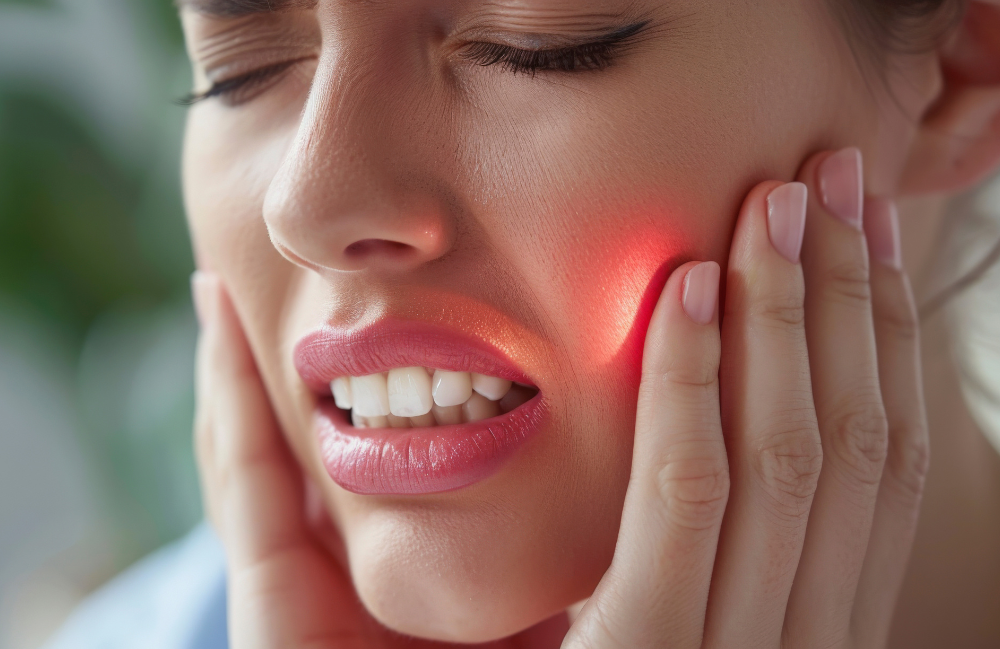
What Is TMJ and Jaw Clenching?
TMJ refers to the dysfunction of the jaw joint that connects the jawbone to the skull. Jaw clenching, often a symptom of TMJ, involves tightening the jaw muscles, which can occur subconsciously, especially during sleep. This can lead to significant discomfort, affecting not just the jaw but also the head, neck, and shoulders.
What Causes TMJ and Jaw Clenching?
Common causes of TMJ and jaw clenching include:
- Stress. Emotional stress plays a significant role in TMJ and jaw clenching, as it often triggers unconscious behaviors like tightening the jaw or grinding teeth. Many people clench their jaw when under pressure or feeling anxious, particularly during sleep.
- Bruxism. This is the medical term for teeth grinding, which typically happens involuntarily during sleep. Bruxism leads to significant strain on the jaw muscles and can exacerbate TMJ symptoms over time.
- Malocclusion. A misaligned bite can place uneven pressure on the jaw, causing muscle strain and leading to jaw clenching or tension headaches.
- Injury. Trauma to the jaw, such as a direct impact, can disrupt the function of the temporomandibular joint, leading to long-term clenching or pain in the jaw.
- Arthritis. Inflammatory conditions like arthritis can affect the temporomandibular joint itself, causing stiffness, discomfort, and increased clenching as the body compensates for the pain.
Symptoms
The symptoms associated with TMJ and jaw clenching include:
- Jaw pain or tenderness.
- Headaches and migraines.
- Difficulty opening or closing the mouth.
- Clicking or popping sounds in the jaw.
- Facial and ear pain.
- Tension in the neck and shoulders.
What Are the Possible Treatments?
At Metropolis Dermatology, we provide several treatment options for TMJ and jaw clenching:
- Botulinum toxin injections. Botox can be injected into the jaw muscles to relax them, reducing tension and clenching, thereby alleviating pain and discomfort.

FAQs
How does botulinum toxin treat TMJ?
Botox relaxes the overactive jaw muscles responsible for clenching and grinding, providing relief from tension and pain.
How long do Botox results last for TMJ?
Results typically last 3 to 4 months, after which the treatment can be repeated.
Is TMJ curable?
While there is no definitive cure, treatments can effectively manage and alleviate symptoms.
Can TMJ cause headaches?
Yes, TMJ-related jaw clenching often leads to tension headaches and migraines.
Are there any side effects from Botox injections for TMJ?
Mild side effects like temporary bruising or soreness at the injection site may occur but are typically minimal.
Hear from
Real Patients

Schedule Your Consultation Today
If TMJ or jaw clenching is affecting your life, Metropolis Dermatology in San Jose, CA, offers cutting-edge solutions to help manage and reduce symptoms. Contact us today to schedule a consultation and explore how we can help you achieve relief!
